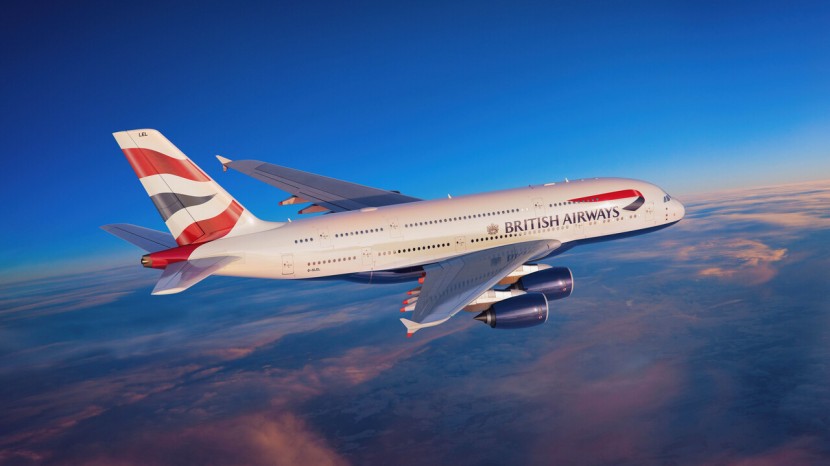
Across the globe, thousands of travellers discovered their carefully planned journeys had become casualties of escalating tension in Middle East following America's weekend bombing campaign against Iran's nuclear facilities.
What started as a military operation half a world away had transformed into aviation's worst nightmare, turning the Middle East's busiest air corridors into no-fly zones practically overnight.
The numbers tell only part of the story. British Airways, Singapore Airlines, Air France—carriers that built their reputations on reliability—suddenly found themselves playing a desperate game of aerial chess, moving aircraft like pieces across a board where the rules kept changing by the hour.
Flight Chaos Spreads Across Europe's Major Carriers
The aviation meltdown began over the weekend when British Airways was forced to make split-second decisions as Operation Midnight Hammer unfolded.
One BA flight departing London Heathrow on Saturday evening was dramatically diverted to Zurich after reaching Saudi Arabian airspace, whilst another Dubai-bound aircraft performed a U-turn over Egyptian airspace, returning passengers to their starting point after hours of uncertainty.
A report by the Aviation A2Z (https://aviationa2z.com/) said British Airways (BA) and Singapore Airlines (SQ) have suspended multiple flights to the Middle East Gulf. It said the cancellations affect routes to key hubs like Dubai (DXB), Doha (DOH), and Bahrain (BAH), with airlines citing safety concerns and evolving airspace restrictions.
Gulf Flights Cancelled
British Airways (BA) suspended several scheduled flights to Dubai (DXB) over the weekend and diverted at least two jets mid-route, according to Aviation A2Z.
BA also stopped its services to Doha (DOH) and Bahrain (BAH), citing ongoing 'operational constraints and airspace restrictions.'
The airline stated it had adjusted its flight schedules to prioritize passenger and crew safety, following the US-led airstrikes in Iran.
Singapore Airlines (SQ), based in Singapore (SIN), announced it had cancelled two flights between Singapore and Dubai. In a public advisory, the airline warned that other routes could face changes depending on further developments, noting that "the situation remains fluid.'
In Tel Aviv, Israel, Major global airlines continued rerouting flights to avoid Middle Eastern airspace following recent U.S. military strikes on Iranian nuclear facilities.
FlightRadar24 said aircraft from carriers such as United Airlines (UA) and American Airlines (AA) are circumventing high-risk zones, including Iran (IKA), Iraq, Syria, and Israel (TLV).
Air France KLM joined the mass cancellations, grounding flights to Dubai and Riyadh through Monday, whilst also suspending Beirut services until Wednesday.
The coordinated response across Europe's major carriers suggested intelligence assessments had reached alarming conclusions about regional security risks.
Stranded Passengers and Mounting Costs
The human cost of this aviation crisis became apparent as thousands of passengers found themselves stranded across multiple continents.
Australia's Flight Centre Travel Group reported customers desperately seeking alternative routing through Singapore, Hong Kong, Johannesburg, or even direct Perth-London flights to avoid Middle Eastern hubs entirely.
Israeli airline El Al faced perhaps the most dramatic challenge, receiving applications from approximately 25,000 people seeking to leave the country within 24 hours of the US strikes.
The airline announced it would extend flight cancellations through 27 June whilst organising limited "rescue flights" carrying just 50 passengers each.
Economic Turbulence Beyond Aviation
The flight disruptions created ripple effects throughout the global economy. Airlines face mounting costs from longer flight paths, increased fuel consumption, and crew scheduling chaos as they navigate around closed airspace.
The situation threatened not just passenger services but crucial cargo operations and fuel supply chains that depend on Middle Eastern logistics networks.
Share prices reflected investor anxiety, with British Airways owner IAG falling 4.6%, Delta Air Lines dropping 4%, and Ryanair declining 3.5% as markets opened Monday. The coordinated nature of airline responses suggested the crisis could persist far longer than initial optimistic assessments predicted.
The New Reality for Middle Eastern Aviation
This crisis represents a fundamental shift for Middle Eastern aviation, which had emerged as a crucial link between Europe, Asia, and beyond. The region's strategic airports had positioned themselves as global transit hubs, but the current conflict has exposed their vulnerability to geopolitical tensions.
Airlines now face agonising decisions about when—or whether—to resume normal Middle Eastern operations. The "fluid" nature of the situation, as Singapore Airlines described it, means carriers must constantly reassess security risks whilst managing passenger expectations and operational costs.
The aviation disruption serves as a stark reminder of how quickly regional conflicts can reshape global travel patterns. What began as tensions between Israel and Iran has now forced fundamental changes to international air routes, stranding passengers worldwide and demonstrating the interconnected vulnerability of modern aviation networks.
As airlines extend cancellations and governments issue updated travel advisories, the question remains: when will the skies above the Middle East safely reopen to commercial aviation? For now, passengers must prepare for extended disruptions as the world's airlines navigate this unprecedented crisis in one of aviation's most critical regions.
Originally published on IBTimes UK
© Copyright IBTimes 2025. All rights reserved.








